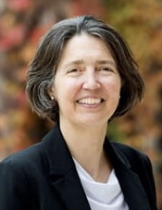Rethinking access to higher education: New scholarship opportunities for learners from sub-Saharan Africa

J-PAL and MIT recently announced the launch of a full master’s degree program in Data, Economics, and Development Policy. This blended program combines online learning and one semester of residential instruction at MIT, and is open to students of all educational backgrounds. To help meet growing demand in sub-Saharan Africa for training and capacity building, the William and Flora Hewlett Foundation will sponsor seven students from sub-Saharan Africa over the first three years of the blended master’s program. Sponsorship includes full coverage of tuition, housing, and healthcare costs, as well as a small living stipend.
To be eligible to apply for the blended master’s program and the Hewlett Foundation scholarship, students should successfully complete the online MITx MicroMasters in Data, Economics and Development Policy credential at their own pace. The credential requires students to pass five rigorous online courses, along with accompanying in-person proctored exams for each course. Once students receive their MicroMasters credential, they can apply to complete their full master’s degree in one semester at MIT. Applications for the blended master’s will open in 2018.
Since the launch of our MicroMasters in Data, Economics, and Development Policy in February 2017, more than 10,000 students from 187 countries have enrolled in the program’s courses. Nearly 70 percent come from low or middle-income countries—a positive trend towards a more diverse and inclusive kind of graduate education at MIT, and a promising indication of the growing global interest in evidence-based social policy.
The blended master’s program builds on this demand, offering opportunities for traditional and non-traditional students to access high-quality graduate education. This graduate program is the first at MIT to exist exclusively in the blended online/residential format.
We know that many who aspire to a post-graduate education face significant barriers to access. For applicants to top universities whose resumes don’t boast prestigious undergraduate degrees, signalling their aptitude among others with near-perfect credentials can be an insurmountable hurdle. Although universities strive in earnest for greater inclusiveness, admissions committees struggle to spot talent beyond the usual markers of success. Students lucky enough to gain admission face the reality that graduate school remains an expensive and time-intensive endeavor.
The blended master’s program, a collaborative effort between J-PAL and MIT’s Department of Economics, offers a potential solution to these challenges. No prior university-level education is required; any student who has successfully completed the online MicroMasters credential will be eligible to apply. The MIT admissions committee will base its decisions primarily on students’ performance in the MicroMasters program, allowing students to demonstrate their abilities regardless of background or origin.
Even with more feasible logistics, the financial cost of graduate education can be the most significant barrier to access. In our MicroMasters program, we offer students income-based pricing. This means students are charged based on their ability to pay (between US$100 and US$1,000 per course). The majority of our students study with us at the lowest course price.
For these reasons, the ultimate success of the blended online and in-person Master’s degree hinges on our ability to further extend financial support to deserving students who cannot afford MIT’s graduate tuition. Funding from the Hewlett Foundation, in addition to providing sponsorships for blended master’s students, will further subsidize the cost of online MicroMasters courses for learners from sub-Saharan Africa and support increased awareness of the program in the region.
Solving the world’s most difficult development challenges requires finding and developing global talent with a range of backgrounds and experiences. We hope that this effort to level the playing field in graduate education will not stop here. Encouragingly, J-PAL and MIT are in conversations with several universities exploring similar blended learning opportunities. It is our aim that this new endeavor can serve as an experimental model for rethinking higher education and expanding access to diverse learners worldwide.
For more information about the MicroMasters and blended master’s, including opportunities for foundations and individuals to support increased access for low-income learners, please contact [email protected].

